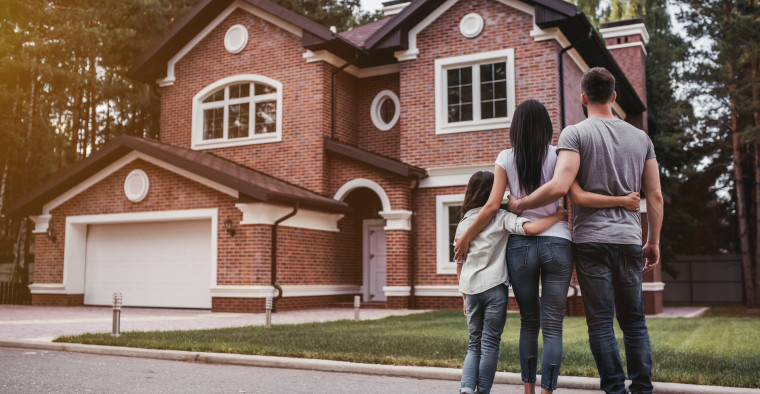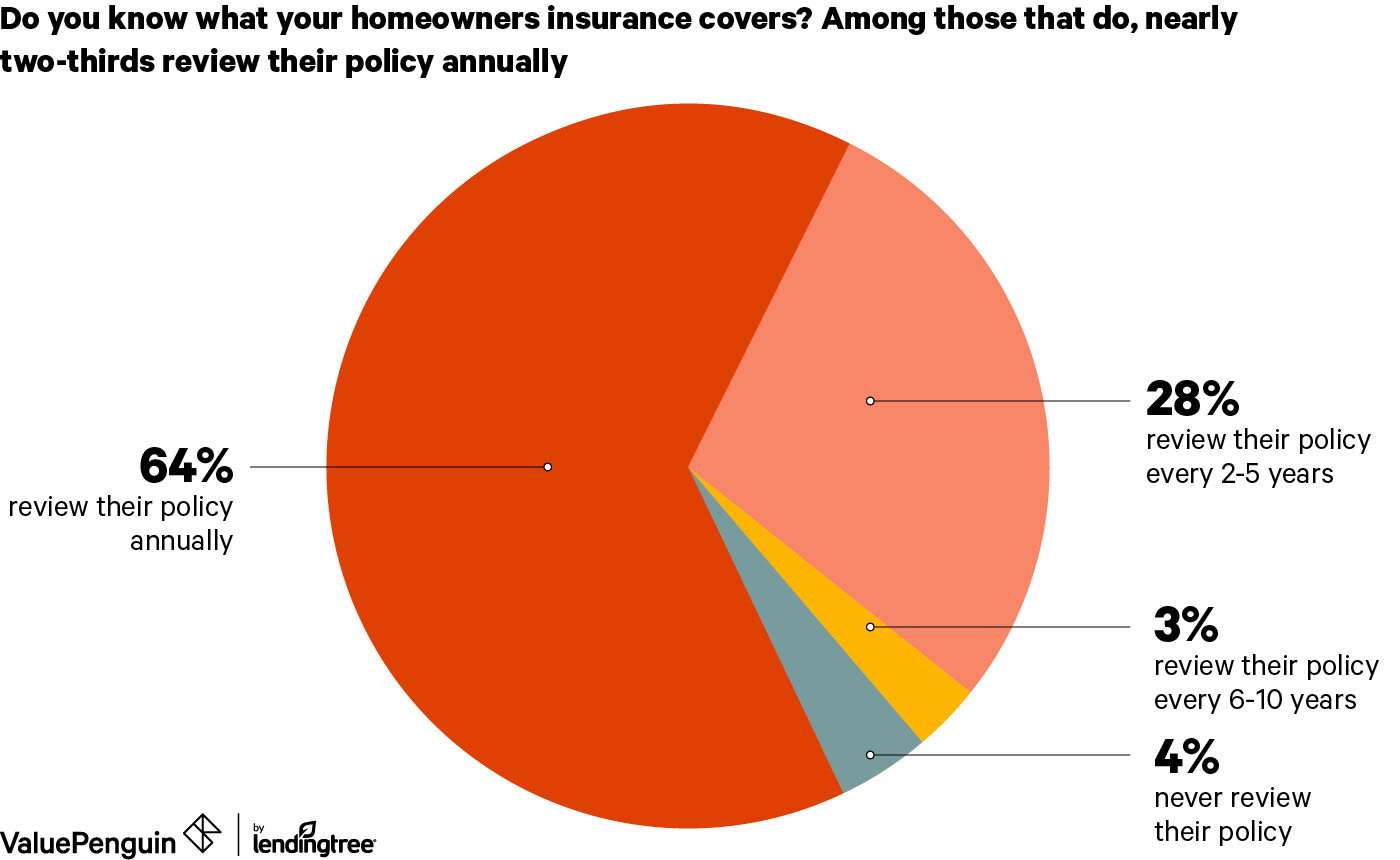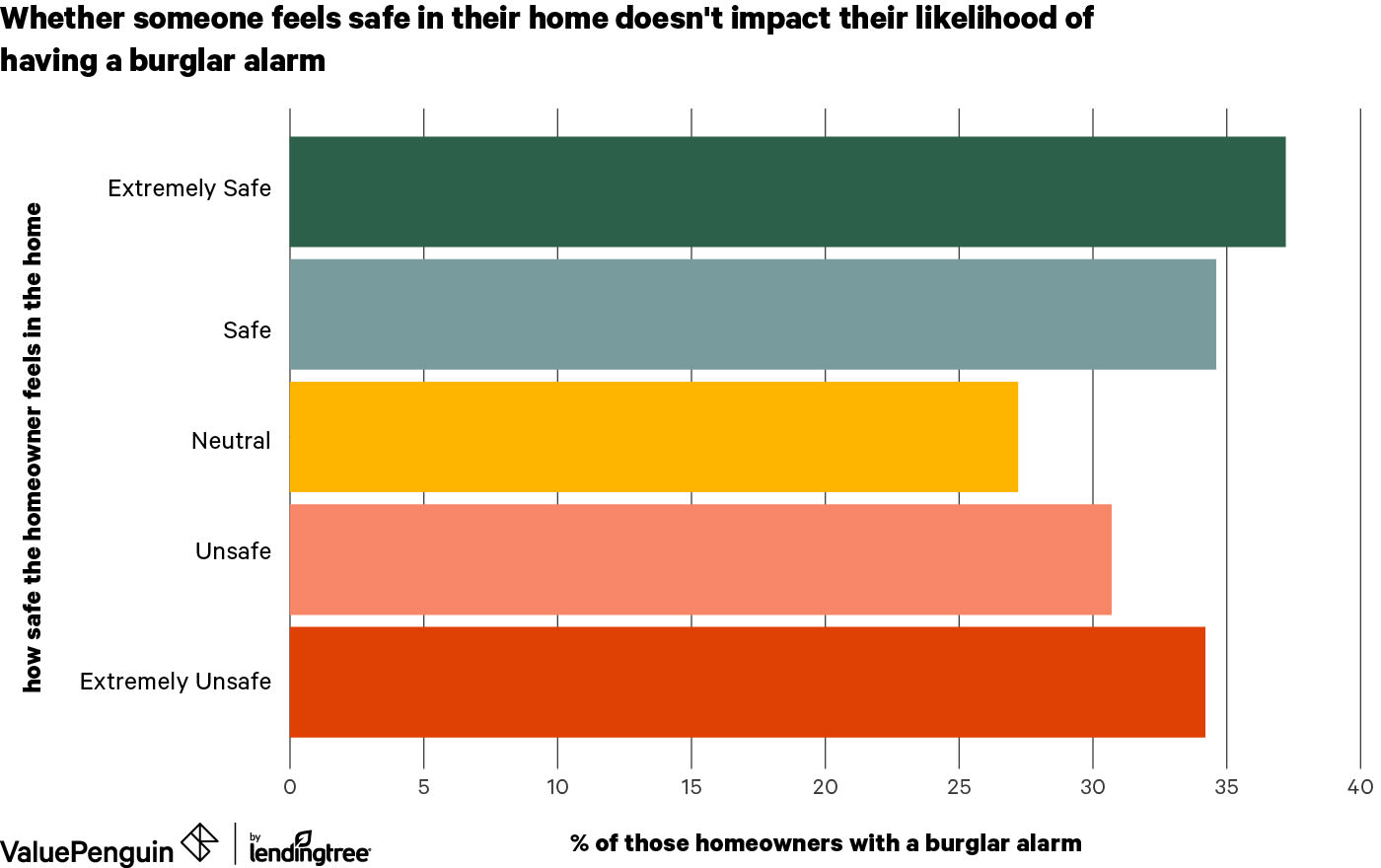Homeowners Insurance
Nearly Half of Homeowners Don't Know What Their Insurance Policy Covers

While 85% of homeowners in the U.S. have home insurance, ValuePenguin's survey of 2,000 homeowners found that just half know what their home insurance policies cover. Even fewer compared prices when shopping for coverage, just 1 in 10, and 34% believe their policies cover flooding, though that's not typically the case. This research indicates many homeowners could be overpaying for insurance and inadequately covered.
Another concerning finding: Less than 40% of homeowners have a home-monitoring system in place, such as a burglar alarm, fire alarm or water sensor. Not only do these systems make homeowners eligible for insurance discounts, but it's financially risky not to have them in place. Fire and water damage are among the costliest incidents for homeowners, together making up more than one-third of homeowners insurance claims costs.
Key findings:
- 47% of homeowners do not know what their homeowners insurance policies cover. In fact, nearly 20% have never reviewed their policies.
- Almost 50% of millennials believe their homeowners insurance covers flooding, even though most policies do not cover floods. Just 21% of baby boomers hold the same misconception.
- About 1 in 3 homeowners got coverage from their auto insurer, and just 10% shopped around for homeowners insurance to find the best rate.
- The higher your income, the safer you feel in your home. As many as 92% of homeowners who earn more than $100,000 per year feel safe in their homes, compared to 80% of those earning less than $35,000.
- Nearly half of homeowners earning six figures have a home-monitoring system, compared to just 35% of those earning less than $35,000.
18% of homeowners have never reviewed their insurance
Our survey of homeowners found that 47% are unsure of what their home insurance covers. However, this is unsurprising as one-third of these respondents also said they've never reviewed their policies. In contrast, 71% of homeowners who review their insurance coverage annually are confident in their understanding of which perils are covered.

Most homeowners don't comparison shop for insurance
Based on our analysis, homeowners are 78% more likely to choose their insurance policy based on a recommendation than they are to comparison shop, either through working with an independent insurance agent or comparing quotes online.
Home insurance rates can vary significantly between insurers. In Florida, for instance, the average cost of a policy varies by more than $1,500 between the cheapest and the most expensive insurers for nearly identical coverage. And the best-priced insurer will frequently change based on regional risks, how your home is built and whether you have other policies, such as car insurance, with the company. Therefore, we recommend homeowners always compare quotes using their own details before purchasing coverage.
Most homes don't have a monitoring system installed
More than 60% of homeowners do not have a home-monitoring system in place. And we were surprised to find that whether someone feels safe in their home doesn't impact their likelihood of having a burglar alarm.

The most common types of home-monitoring systems among homeowners were central burglar alarms (59%) and central smoke/fire alarms (58%). However, tech-friendly inventions are on the rise, as 53% have a smart security or water-shutoff device.
Given homeowners primarily acquire monitoring systems to protect their properties and get lower insurance rates, it's logical that central alarms are the primary monitoring systems installed. These provide a direct link to local protective services, in case a home is on fire or broken into, and reduce response times and potential damage or losses. However, these systems also tend to offer minimal savings on homeowners insurance.
Why do people acquire home-monitoring systems?
Reason you installed the home-monitoring system | % of homeowners |
|---|---|
| To protect my investment in the home | 51.5% |
| Insurance company discounts | 21.6% |
| It was preinstalled when I bought the house | 13.3% |
| It was required by my HOA or lender | 8.9% |
| Other | 4.6% |
Methodology
ValuePenguin by LendingTree commissioned Qualtrics to conduct an online survey of 2,000 American homeowners, 1,849 of whom had homeowners insurance. The survey was fielded March 22-27, 2019.
